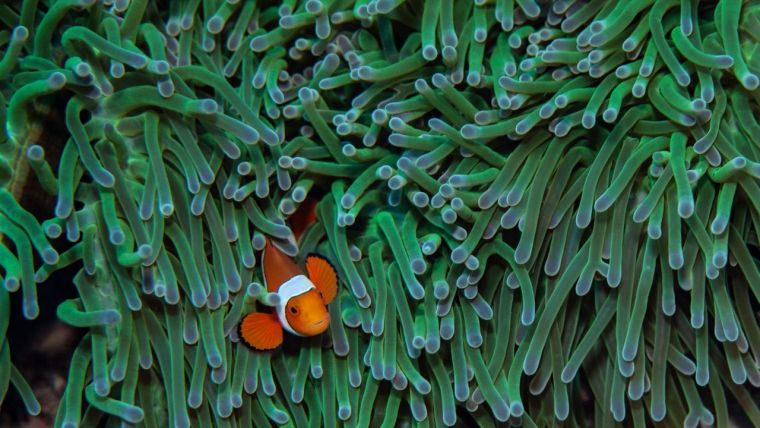'Clownfish Nemo Won’t Be Able to Save Himself'
The beloved anemone fish popularized by the movies 'Finding Nemo' and 'Finding Dory' does not have the genetic capacity to adapt to rapid changes in its environment, according to a new study by France’s National Centre for Scientific Research (CNRS), the Woods Hole Oceanographic Institution (WHOI) and partners. Their findings were published in the journal 'Ecology Letters'.
An international team of researchers monitored clownfish in the lagoons of Kimbe Bay – a biodiversity hotspot in Papua New Guinea – for more than a decade, reports Eurasia Review, an independent journal and think tank that provides a venue for analysts and experts to disseminate content on a wide range of subjects. Using genetic analysis of the population’s DNA, the researchers were able to calculate the potential of the fish to adapt to habitat changes and renew their population. They found that big families of clownfish that extended over many generations were linked to high-quality habitats, rather than to shared genes.
Quality of the Anemone
“The findings reported here were made possible by a huge sampling and DNA sequencing effort that had not been attempted for any marine species before,” says WHOI biologist Simon Thorrold, a co-author of the paper. “The biggest surprise to us was also the most troubling: conservation efforts cannot rely on genetic adaptation to protect clownfish from the effects of climate change. It seems that Nemo won’t be able to save himself.”
The quality of the anemone that provides a home to clownfish contribute significantly – on average 50% – to its ability to survive and renew its population. If high-quality anemones remain healthy, the clownfish population will persist. However, if the anemones and coral reefs they call home are impacted by global warming, the clownfish are in trouble.
Quality of Nemo's Habitat
“Nemo is thus at the mercy of a habitat that is degrading more and more every year,” says Benoit Pujol, an evolutionary geneticist at CNRS. "To expect a clownfish to genetically adapt at a pace which would allow it to persist in the lagoons would be unreasonable, and thus the ability of these fish to remain in the lagoons over time will depend on our ability to maintain the quality of its habitat.”
About WHOI
The Woods Hole Oceanographic Institution (WHOI) is a private, non-profit organization on Cape Cod, Mass., dedicated to marine research, engineering, and higher education. Established in 1930 on a recommendation from the National Academy of Sciences, its primary mission is to understand the oceans and their interaction with the Earth as a whole, and to communicate a basic understanding of the oceans’ role in the changing global environment. (www.whoi.edu).
About the CNRS
The French National Centre for Scientific Research is among the world's leading research institutions. Its scientists explore the living world, matter, the Universe, and the functioning of human societies in order to meet the major challenges of today and tomorrow. Internationally recognised for the excellence of its scientific research, the CNRS is a reference in the world of research and development, as well as for the general public.
Photo caption: Clownfish on anemone in the lagoon around Kimbe Island in Papua New Guinea. (Photo by Simon Thorrold, Woods Hole Oceanographic Institution)














